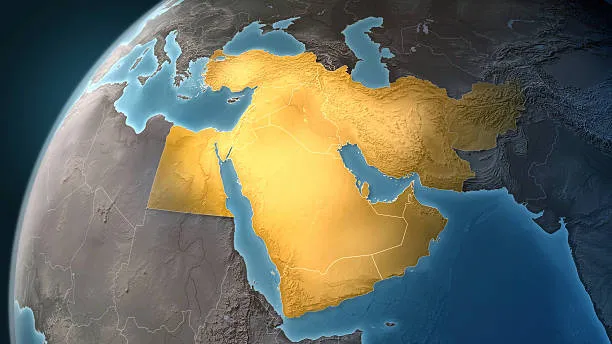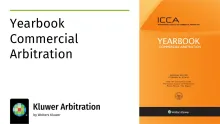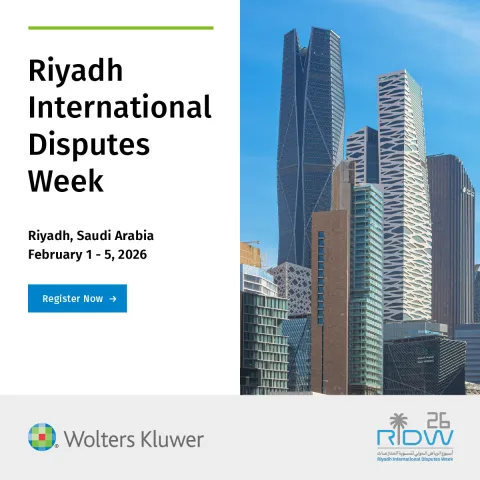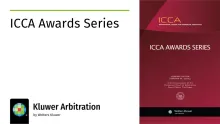Not Your Old BIT: New-Generation Features in the Egypt–Kingdom of Saudi Arabia Bilateral Investment Treaty
July 27, 2025
Following the Arab Spring, there has been a hiatus in Egypt regarding the conclusion of bilateral investment treaties ("BITs"), except for the 2014 Mauritius BIT. Since then, Egypt has been hit with more than 38 investment arbitration cases. Consequently, Egypt has been working on reviewing its approach towards international investment agreements (“IIAs”), having already concluded 100 BITs, and a couple of plurilateral investment agreements.
Egypt's BIT with the Kingdom of Saudia-Arabia (“KSA BIT”) addresses serious issues Egypt faced in previous cases, where it was the receiving end of a handful of unfavourable awards.
i. Introduction
The KSA BIT came into force, after it had been approved by the Egyptian parliament in April 2025.
The KSA BIT represents a new-generation approach to investment protection, moving beyond traditional investor-state frameworks. From the inclusion of investor obligations to a greater emphasis on sustainable development and transparency, the treaty reflects evolving standards in international investment law.
ii. Definitions
Under Article 1, the definition of investment embraced the Salini test. A novel approach in this BIT is the negative list of “what is not to be qualified as investment”. This encompasses, for instance, monetary claims resulting from arbitral awards. The inclusion of a negative list would impose limitations on what tribunals could consider as an investment.
Under the KSA BIT, effective nationality is one of the considerable criteria for determining the dominant nationality for dual nationals. In the past, some tribunals have entertained issues of double nationality. For instance, in Bahgat v. Egypt, a case under the Finland BIT, the tribunal sided with the claimant flagging his Finnish nationality as his effective nationality, while Egypt claimed that he pursued his investment as an Egyptian national.
For juridical persons, the KSA BIT adopted the Siège social criterion, in addition to actual economic interest in the home state, and control or substantial interest in the corporate vehicle. Previously, these two criteria were not combined. For instance, in Ampal v. Egypt, a dispute under the US BIT, Egypt contested the tribunal’s jurisdiction. It claimed that there was a lack of substantial interest of US nationals in Ampal. The tribunal interpreted "substantial interest" as "not necessarily meaning a controlling or a majority interest". The tribunal considered the US addresses of the owners of shares representing 38.18% in Ampal voting capital a "reasonable inference" that the shares were owned by US nationals reflecting a substantial interest.
iii. Standards of Investment Protection
The KSA BIT grants foreign investors the right to national treatment, but it also includes exceptions in certain matters such as tax, health, education, foreigners’ ownership in some geographical areas, and areas with high demand for social and economic development. In most BITs, Egypt has seldom incorporated exceptions for national treatment. Remarkably, the KSA BIT illustrates that discrimination is evaluated on a case by case basis, with respect to the rationale of the claimed "discrimination", in light of the general regulatory process, the purpose of the public policy, and the timing of the purported discrimination. In BITs with Germany and Italy, there was a definition of “less favourable” treatment, thereby limiting the scope of interpretation.
Equally, the BIT refers to the most-favoured-nation ("MFN") standard. It excludes those BITs that predate the KSA BIT from its scope. This wide exclusion has never been included in Egypt BITs, except for the 2004 Finland BIT. Further, it excludes dispute settlement provisions from the scope of MFN. This has not appeared before under Egypt BITs, except for the Mauritius and Switzerland BITs. This resolves a debate concerning whether the MFN standard is construed as limited to substantive protection or extended to the dispute settlement clause. In H&H v. Egypt case, a dispute under the US BIT, the claimant sought to deviate from the fork-in-the-road clause through the MFN provision, by referring to the investor-state dispute settlement ("ISDS") clause under the Germany BIT. The tribunal concluded that, unless otherwise stated, an MFN clause does not cover the dispute settlement clause.
Equally, the KSA BIT excludes, under the MFN standard, those incentives granted under plurilateral investment agreements. This apparently stems from the experience of Indonesia in Warraq v. Indonesia under the Agreement on the Promotion, Protection, and Guarantee of Investment among the Member States of the Organisation of the Islamic Conference ("OIC Investment Agreement"), where Egypt is a member thereto, the tribunal found that the MFN clause under the OIC Agreement extended to the MFN treatment accorded under any BIT concluded by the host state.
Investors are entitled to the full protection and security (“FPS”) standard. While it is worded in broad terms, the clause underlines that a legislative amendment would not per se be considered a breach of FPS. Most Egypt BITs, either with developed or developing countries, refer to the FPS standard without specifications. For the first time, Egypt illustrates what is considered to be a breach of the standard. Otherwise, the adjudicator/arbitral tribunal would have wide authority to freely interpret the standard. For example, the tribunal in Wena v. Egypt, a case under the UK BIT, considered that Egypt breached the FPS standard and the Fair and Equitable Treatment (“FET”) standard, collectively, without elaborating separately, which actions represented a breach of FET or FPS.
In disputes under the Convention on the Settlement of Investment Disputes Between States and Nationals of Other States ("ICSID Convention"), investors invoked FET in 71% of ICSID disputes under Egypt BITs 71%, which might explain the absence of this standard in the KSA BIT. However, the BIT underlined that the host state guarantees non-arbitrary treatment to investors. It further refers to the prohibition of expropriation without compensation. Then, it indicates that bona fide and indiscriminatory regulations applied for the public good, such as public health, safety, environment, and public order, are permitted; however, it would entitle investors affected by these regulations to receive compensation.
Investors enjoy the freedom of transfer of funds. Usually, Egypt BITs do not identify the forms and categories of funds protected. A handful of Egypt BITs have restrictions on the repatriation of funds, such as those with Italy, Canada, the UK, and the US. In alignment with those BITs, the KSA BIT refers to an exclusive – albeit broadly defined – list of what is meant by transferable funds. This BIT allows the host state to delay or obscure repatriation of funds temporarily, either for reasons pertinent to listed obligations of the investor, or economic woes in the host state. This reflects a prudent approach towards foreign investment, especially as there was economic instability in Egypt post the Arab Spring.
The KSA BIT is the first in which Egypt allocates a distinct clause for corporate and social responsibility of investors, as regards public health, environment, limitations of climate change, sustainable development, anti-corruption, fair competition, and money laundering. The host state, according to this responsibility, would be entitled to counterclaim against foreign investors, or might make objections pertinent to jurisdiction and admissibility based on the investor’s failure to fulfil its responsibility.
Article 16 of the KSA BIT regulates a general exception clause that secures the host state's right to take the necessary actions to protect, for instance, public order, the environment, natural resources, financial stability, and compliance. This is exceptional as Egypt BITs seldom preserve regulatory powers. Article 16 is thus likely to preserve regulatory powers without legal responsibility. Moreover, Article 17 of the KSA BIT stipulates the right of the host state to take the necessary measures to preserve its national security.
iv. Investor-State Dispute Resolution
The KSA BIT allocates an entire chapter to ISDS. First, it puts regulations for the amicable settlement of the dispute. The investor may bring the dispute under the ICSID Convention, the ICSID Additional Facility Rules, the UNCITRAL Arbitration Rules, or any other arbitration institution that the parties agree to. Further, it regulates time bars for bringing claims. In the past, Egypt had objected to the ratione temporis of the tribunal in the H&H case, as it has been seven years since the last alleged breach, and 18 years since the first alleged breach. The tribunal dismissed this objection, as there was no such principle of prescription under the rules of international law.
Moreover, the fork-in-the road provision refers to “the same factual background” to prevent diverging interpretations among tribunals. In the Middle East Cement v. Egypt case, a dispute under the Greece BIT, Egypt contended that claimant waived its right to bring the dispute before investment arbitration by bringing the same dispute before the Egyptian courts. However, the tribunal concluded that "[t]he case brought by claimant before the Egyptian Courts regarding the alleged nullity of the auction, was not and could not be 'concerning' Egypt’s obligations under the BIT but could only be concerning […] Egyptian national law."
To the contrary, in the H&H case, the tribunal found that the sole criterion for triggering the fork-in-the-road clause is if the dispute before domestic courts and investment arbitration "share the same fundamental basis".
The chapter on ISDS would be inapplicable to contracts signed between the host state or one of its subdivisions or parastatals and the investor, where the contracting parties agreed to a mechanism for dispute resolution. This provision is intended to curb abuse of process.
For the first time under Egypt BITs, the KSA BIT regulates third-party funding of investment claims. However, should a party fail to disclose third-party funding, the arbitration award would be rendered in a breach of a substantial condition agreed upon between the contracting parties.
v. Conclusion
The KSA BIT stands out as a new-generation agreement that integrates lessons from past arbitration experiences while aligning with evolving global standards. From narrowing treaty shopping through tightened investor definitions, to enhancing state regulatory space via general exceptions and omitting traditional FET language, the treaty reflects a calibrated balance between investor protection and sovereign policy objectives. Its forward-leaning provisions on corporate social responsibility, third-party funding, and procedural safeguards signal a maturing investment policy approach. As the treaty enters into force, it may not only reshape investment flows between the two countries but also influence future treaty negotiations across the region and beyond.
You may also like











